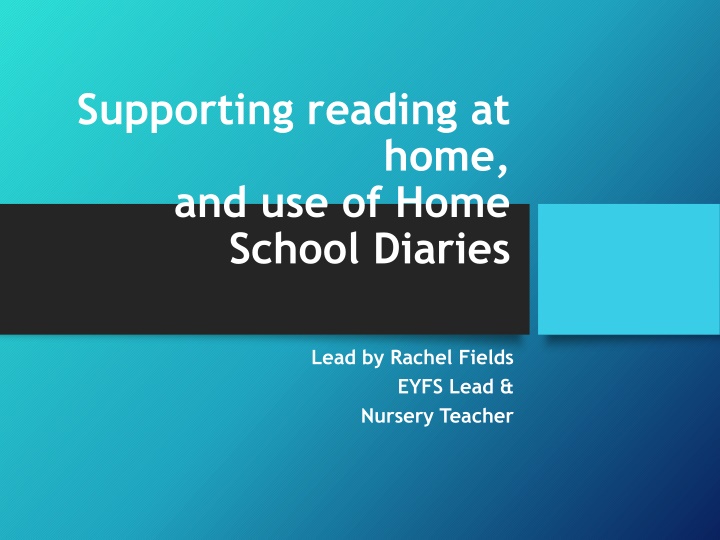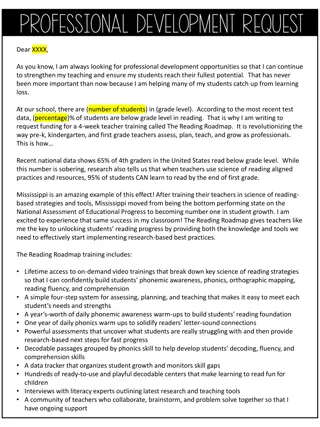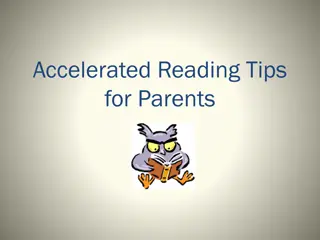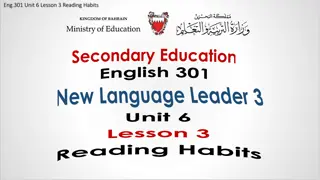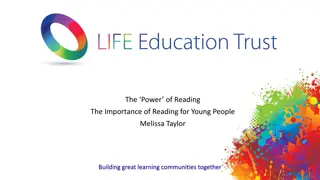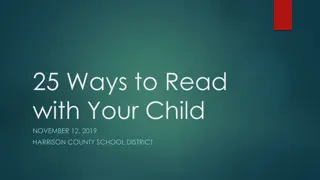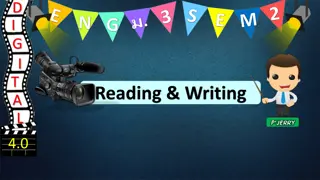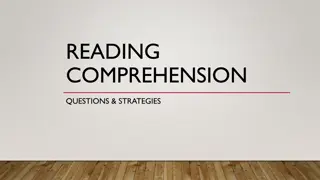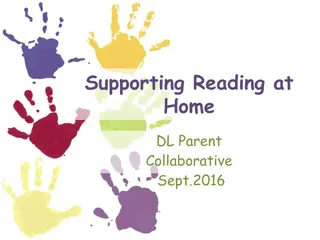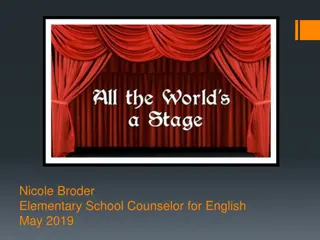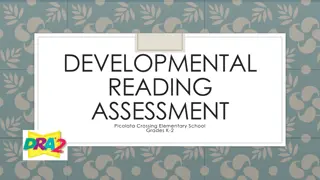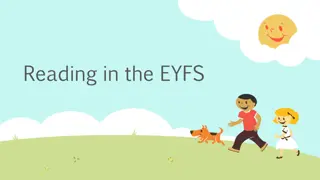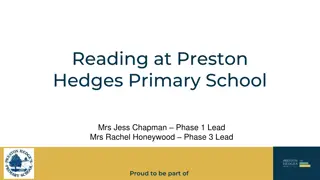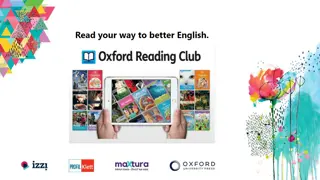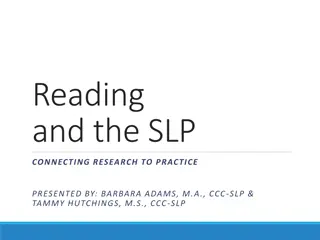Supporting Reading at Home and Use of Home School Diaries
Early reading is crucial for children, and developing speaking and listening skills is essential for their literacy journey. Reading at home involves various activities such as reading newspapers, picture books, and labels with your child, along with regular guided reading sessions at school. Parents are expected to engage in their child's reading journey by bringing book bags daily, asking questions to enhance comprehension, and providing feedback to the school. The school promises regular book changes, 1:1 reading sessions, and guided reading activities to support each child's reading progress.
Download Presentation

Please find below an Image/Link to download the presentation.
The content on the website is provided AS IS for your information and personal use only. It may not be sold, licensed, or shared on other websites without obtaining consent from the author.If you encounter any issues during the download, it is possible that the publisher has removed the file from their server.
You are allowed to download the files provided on this website for personal or commercial use, subject to the condition that they are used lawfully. All files are the property of their respective owners.
The content on the website is provided AS IS for your information and personal use only. It may not be sold, licensed, or shared on other websites without obtaining consent from the author.
E N D
Presentation Transcript
Supporting reading at home, and use of Home School Diaries Lead by Rachel Fields EYFS Lead & Nursery Teacher
Aims Early reading What does reading at home look like What is expected of them What you can expect from us How you can best support What to do if it goes wrong Home School Diaries (and bookbags)
Early Reading Speaking and listening are vital skills children need to develop in order to live successful lives in society. They are key skills for children developing their ability to read and write.
What does reading at home look like? Read to your child newspapers, picture story books, recipes, notes, labels at the supermarket Read with your child read the levelled book your child has been sent home with, together At least 15 mins every day the strongest and most confident readers are those that are immersed in literature and vocabulary
What is expected of them Please bring book bags in every day Please ask your child about the text jazz them up a little! Who? What? Where? Why? How? Please write a comment to us about the reading going on at home and we will respond
Guided Reading Your child will read at least twice a week with a trained adult Day 1 word level Day 2 sentence level and comprehension Read at home to everyone! Return the levelled book EVERY FRIDAY. Class teacher records books returned weekly on a tracker in class
What you can expect from us We will change books at least weekly these will include a levelled book and a picture story book of your child s choosing Please let us know if you would like the book changed more regularly this is great! We will read 1:1 at least weekly We will read in a guided reading session twice weekly Learning to blend sounds into words Learning tricky words as a sight vocabulary
How you can best support Let them have a go first! Encourage them to persevere before getting help Let them talk you through it If your child is using a particular method, please support them with this, rather than showing them a method that you may have used when you were learning When supporting your child, please try to guide them where ever possible, rather than just showing them the answer they will learn far better this way Model and expect good listening Encourage the understanding and use of new vocabulary Sing songs, rhymes and read poems, enjoying the rhyme and rhythm of words Read to your child regularly and develop their story language
What to do if it goes wrong Let us know!
Home School diaries and bookbags A means of communication A way to ensure that children are reading at home A chance for the children to reflect on their reading outside the classroom. A resource for you to support with their reading Return levelled books on FRIDAYS
